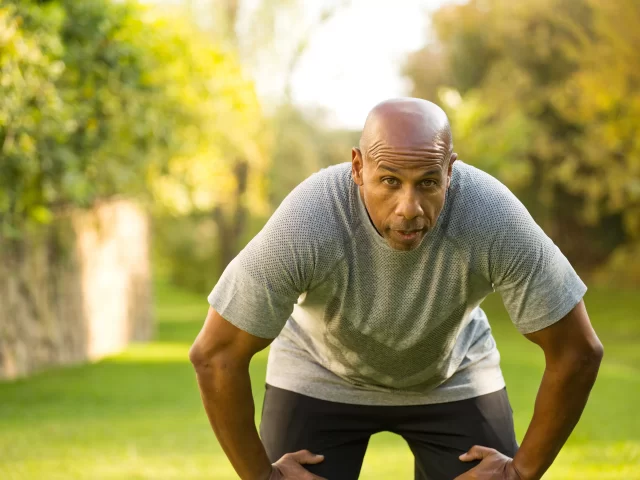Tips for Exercising with Asthma or Allergies

If you have asthma or allergies, it usually doesn’t mean you can’t exercise or do the activities you enjoy. In fact, it’s important for you to be physically active to keep your heart and lungs strong, to maintain your weight and to help keep you healthier overall.
Of course, there are times when the severity of your asthma or allergies may win out over your desire to exercise. But you can often enjoy your favorite activities by taking precautions to help prevent a flare-up of symptoms.
Here are 7 tips to breathe easier during exercise:
- Get things under control. Make sure asthma is well-controlled before you start any new activity or change what you’ve been doing.
- Make a plan. Talk with your doctor about what to do before you exercise, what symptoms to look for and how to address them when they occur.
- Manage medication. If you need medication to manage your asthma or allergies, take it before symptoms flare up. If you use a rescue inhaler, make sure you have it with you during your workout.
- Identify and avoid triggers. Know what makes your symptoms worse and vary your workout accordingly. For example, if your asthma or allergies are worse when pollen counts or air pollution levels are high, avoid exercising outside during these times. Dry or cold air can make asthma worse. Windy conditions can aggravate allergy symptoms. Avoid locations where triggers are higher.
- Warm up and cool down. Warm up before any activity so your body and your lungs have a chance to adapt. Cool down at the end of your workout as well. This is especially important if you have exercise-induced asthma.
- Choose the right workout. Some activities are well tolerated by people with asthma while others are more likely to trigger an asthma attack. Activities such as yoga, tai chi, walking and swimming are generally better tolerated than running or high-energy sports.
- Take it down a notch. Lower the intensity of your activity if you develop bothersome symptoms. If symptoms don’t improve or worsen, stop until symptoms are under control.
Copyright 2024-2025 © Baldwin Publishing, Inc.. Health eCooks® Heart Healthy Recipes® is a registered trademark of Baldwin Publishing, Inc. Any duplication or distribution of the information contained herein without the express approval of Baldwin Publishing, Inc. is strictly prohibited.